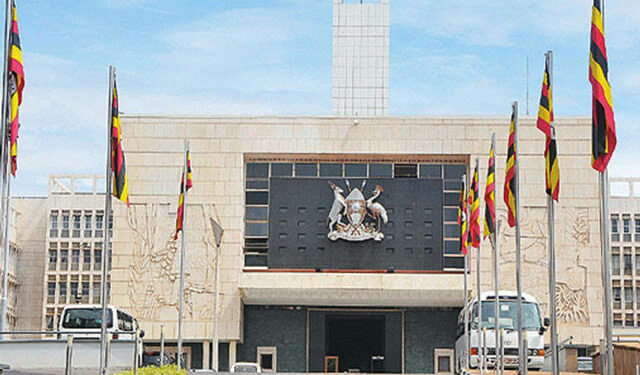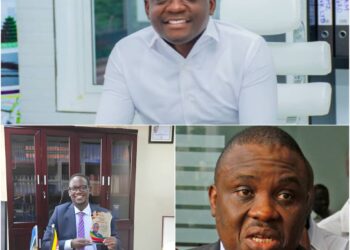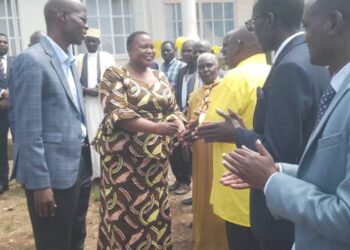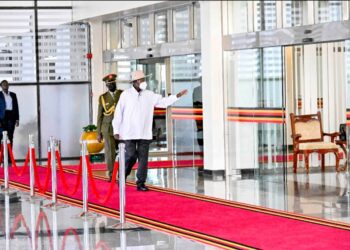Being a Member of Parliament in Uganda is often seen as a glamorous aspiration, but it comes with profound challenges and financial burdens that many overlook. The journey to becoming an MP is steeped in costly expenditures, which deter capable individuals from pursuing political careers. These financial barriers raise concerns about the accessibility of political offices and the quality of representation in the country.
Campaigning alone requires substantial funds. Candidates invest heavily in rallies, promotional materials, and media advertisements to gain visibility and support. The costs can escalate to hundreds of millions of Ugandan shillings, leading some to sell off their homes and assets. This financial strain not only limits who can run for office but also shapes the behaviour of MPs once elected.
Once in office, MPs face pressures to recoup their campaign investments and manage debts incurred during their political ascent. This often leads to unethical dealings and compromises in governance, undermining the integrity of parliamentary debates and decision-making processes.
In essence, while the allure of parliamentary membership in Uganda is strong, the reality is far from glamorous. It’s a life filled with financial entanglements and ethical dilemmas, where the pursuit of public service can be overshadowed by personal financial burdens and compromised integrity.
In many constituencies, candidates often resort to offering incentives to voters to secure their support, ranging from direct cash payments to gifts like bicycles, solar panels, and household items. While these practices aim to secure votes, they significantly increase the cost of running for office and perpetuate a culture of transactional politics.
According to recent reports from the Westminster Foundation for Democracy, which observes elections, even the least expensive Members of Parliament spent between Shs600m to Shs800m in the last election, particularly those aligned with the ruling government in the central region.
In an interview with a former Member of Parliament (whose name was withheld), who sold his house but failed to win re-election and return to the House, he highlighted that candidates spend such substantial sums because Parliament is seen as a hub for lucrative deals. Many invest in their campaigns with the expectation of recouping these expenses through connections and opportunities facilitated by their parliamentary position.
The former lawmaker emphasized to Watchdog Uganda that Uganda’s political system often marginalizes genuinely honest lawmakers unless they engage in activities that facilitate behind-the-scenes deals. He noted, “If you calculate the income versus daily expenditures, it’s insufficient unless there are alternative sources of income, as voters are often unaware of the limitations on what a Member of Parliament can realistically achieve.”
In the race for Parliamentary, candidates must also budget for legal and security expenses. Legal fees can arise from challenges to a candidate’s eligibility or disputes over election results because in Uganda no one will ever accept a win. Additionally, candidates often hire private security to protect themselves and their supporters from political violence and intimidation, which are not uncommon during election periods.
Balancing Power, Patronage, and Public Perception
The 2016 election report from the Westminster Foundation for Democracy (WFD) highlighted significant challenges within Uganda’s political landscape, particularly concerning the National Resistance Movement (NRM), the dominant political party. The report noted a lack of a coherent ideology that voters could align with, instead highlighting a reliance on patronage and financial incentives to secure support.
“Even for a party as dominant as the NRM is, its dependence on paying or rewarding members of the public for their support instead of cultivating their loyalty through, say, its ideology is remarkably high. This happens in several ways. One is through President Museveni, its key fundraiser and dispenser of patronage, handing out cash – in envelopes and at least once, in a sack – to individuals and groups, mainly his and NRM’s supporters, wherever he goes across the country,” reads the report.
This financial dependency extends beyond elections, shaping the ongoing relationship between MPs and their constituents. In Uganda, maintaining voter support often translates into significant financial obligations for lawmakers. MPs are expected to attend and financially contribute to various community events such as burials, weddings, graduations, fundraising, visiting the sick and religious gatherings across denominations, with expenses ranging from Shs1 million to 5 million.
On top of that partisan MPs each have to contribute at least Shs1m towards that party’s coffers.
“Every day in Parliament, I had to carry at least Shs2m-6m to distribute to my constituents. Once elected, our constituents see us as their saviours, and to maintain that perception, MPs often resort to taking loans, driving them into financial strain. This perpetual spending to secure voter loyalty creates a cycle of debt and dependency,” remarked a former lawmaker.
Navigating this environment requires MPs to balance personal financial obligations with their legislative duties, particularly daunting in rural areas where basic services like healthcare, education, and infrastructure remain inadequate. MPs frequently bridge these gaps through personal financial assistance, blurring the lines between public service and personal philanthropy. In contrast, legislators in countries like the United Kingdom and Canada operate within frameworks where government programs alleviate the burden of personal financial support for constituents.
Apart from financial pressures, Ugandan MPs also contend with political expectations and ethical dilemmas. They face considerable pressure from their parties to align with party agendas, sometimes conflicting with constituents’ interests or personal beliefs. The partisan political environment discourages dissent, complicating ethical decisions for MPs torn between party loyalty and representing their constituents effectively.
Conversely, MPs in countries like Sweden and Germany benefit from political systems that prioritize transparency and collaboration, fostering a more ethical governance approach. These systems encourage dialogue and compromise, mitigating the ethical quandaries faced by MPs in Uganda.
Moreover, corruption remains a pervasive issue within Uganda’s political sphere, with allegations of bribery, embezzlement, and misuse of public funds tarnishing the reputation of the legislative body. Many MPs have found themselves indebted and reliant on influential figures to secure committee appointments and legislative opportunities.
“The dynamics in Parliament often force MPs to align with influential figures who control decision-making processes. This dependency perpetuates a cycle where indebtedness compromises legislative independence,” noted a former MP.
The complex interplay of financial dependency, political pressures, and ethical dilemmas underscores the formidable challenges faced by MPs in Uganda. Addressing these issues requires systemic reforms that promote transparency, reduce financial dependency, and strengthen legislative integrity, ensuring MPs can serve their constituents effectively without compromising ethical standards.
In Uganda, the integrity of parliamentary debates often takes a back seat to the issues being discussed, revealing significant challenges among MPs. Many lawmakers struggle to demonstrate their capacity for rigorous debate, often due to financial indebtedness and perceived influence from behind-the-scenes figures, including those who own loan companies operating within the legislative house.
This dependency on external financial interests has compromised the independence and integrity of parliamentary discourse. MPs, burdened by financial obligations to lenders associated with powerful figures, have found themselves constrained in their ability to engage in meaningful debate and independent decision-making on critical national issues.
Do you have a story in your community or an opinion to share with us: Email us at editorial@watchdoguganda.com













